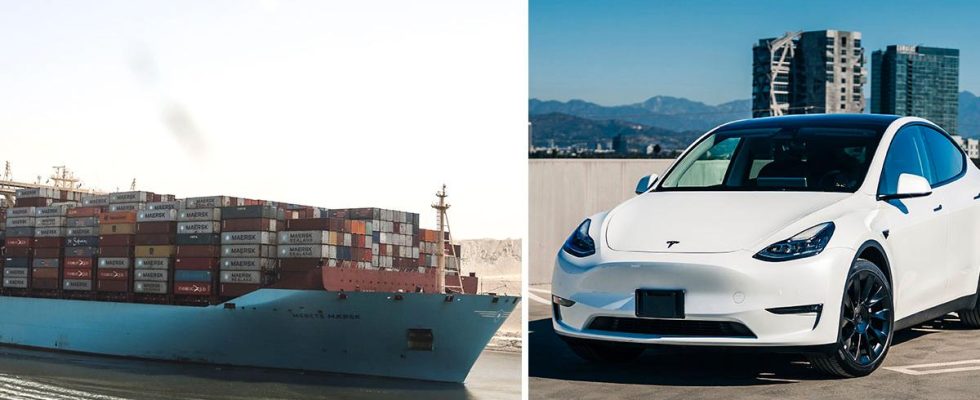unsaveSave
share-arrowShare
The escalated conflict at the Red Sea poses problems for world trade.
Now Volvo Cars and Tesla are temporarily stopping production in Europe.
– The transport route via the Suez Canal is one of the pulses of the world economy, says SEB economist Robert Bergqvist.
ⓘ The summary is made with the support of AI tools from OpenAI and quality assured by Aftonbladet. Read our AI policy here.
Show more
chevron-down
The increased uncertainty at the Red Sea is sabotaging production for car manufacturers Volvo Cars and Tesla.
The background is that the Huthi rebels, who control large parts of Yemen, have since October attacked ships on their way to Israel to show their support for Hamas.
But the rebels are accused of also attacking commercial ships with other destinations, reports say BBC. Now the United States and Great Britain, with the support of a number of countries, have attacked several cities in Yemen with the stated goal of ending the Houthi rebels’ blockade.
expand-left
full screen A container ship passing through the Suez Canal. Photo: Mohamed Elshahed/AP
“One of the arteries of the world economy”
The fastest route for ships to transport goods such as components, clothing or car batteries from Asia to Europe is through the Suez Canal. But to reach the Suez Canal, you have to pass the “Gate of Tears infoGate of Tears” The strait is called Bab el-Mandeb, which means “Gate of Tears”. ” – the strait between Yemen and Djibouti.
A strait that many freighters now choose to avoid due to the unrest at sea. Instead, many choose to circumnavigate the African continent. A detour that takes ten days longer than going through the Suez Canal, according to Reuters.
– World trade is extremely important for keeping the world economy going. This transport route that we have via the Red Sea and the Suez Canal is one of all the arteries we have for the world economy. We have to have transport up and running in order to be able to have trade and production up and running, says Robert Bergqvist, economist at SEB.
Volvo and Tesla stop production
The conflict in the Red Sea is creating delays in global supply chains, putting a damper on many companies that depend on shipping to or from Asia. One such company is Volvo Cars, which chooses to pause production at its factory in Ghent, Belgium for three days. The car manufacturer Tesla is also temporarily stopping its production in Germany.
– This does not only apply to the automotive industry and components. We also have energy that goes through there, says Robert Bergqvist.
But for now, he believes that the economy is sitting quietly in its boat.
– Most people think it will calm down. You see very small effects on the stock market, on the interest rate, the energy price and individual shares.
expand-left
full screenRobert Bergqvist, senior economist at SEB. Photo: Jessica Gow / TT News Agency
So your wallet can be affected
The big question is how protracted the conflict will be. The economy has appeared to recover with expected interest rate cuts from Sweden’s Riksbank during the year. But if it takes a while before the transports get underway, inflation may persist for a while longer.
– What can happen in terms of personal finances is that the price of energy goes up. It will cost more to produce, which in the long run would mean that inflation will be higher. But I assess that risk as manageable and small. I believe that the interest rate cuts that the Riksbank is expected to introduce in 2024 and also in 2025 will come.
